Best Oils for Cooking and the Healthiest

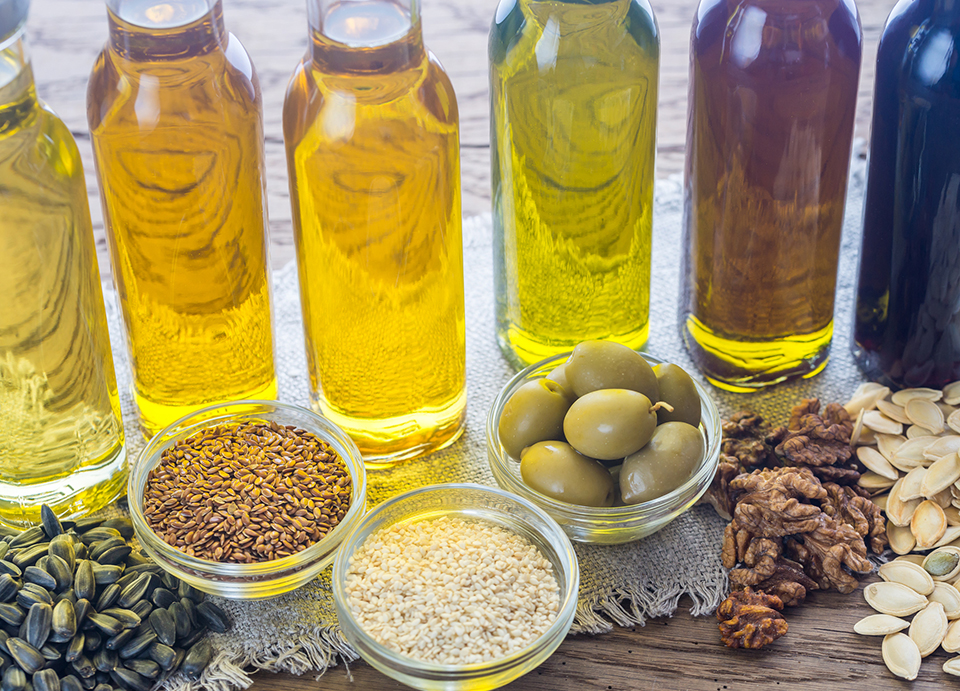
For good health, you need to eat some fat every day, but which fats are best for us? Oils are the most efficient energy nutrients you can consume. They help build healthy cell membranes and are essential to the function of your nervous system. Oils help your digestive tract absorb vitamins A, D, E and K. They also assist in regulating hormones, keeping skin soft and supple and cushioning organs. Oils and fats add pleasant taste and texture to food.
Different oils are popular in different parts of the world and, depending on whether you are sautéing or making a marinade, there are different options to use. Where I grew up in Southeast Asia, we used a lot of coconut and palm oil for cooking.
While palm oil is the most widely used cooking oil in the world, coconut oil is getting a lot of attention right now. A lot of people avoided it for many years because it’s high in saturated fat. That’s true. However, coconut oil also raises the HDL or ‘good’ cholesterol in your body and it’s the type of fat that’s more easily utilized by the body as energy. Also, coconut oil contains antioxidants that support the immune system and has been shown to be antibacterial and antiviral. The lauric acid in coconut oil can help fight strep and staph infections and inactivate viruses, while helping to maintain healthy intestinal ecology. Coconut oil has a high smoke point—about 450 degrees—which means you can stir fry at high heat without it breaking down or setting off your smoke alarm. And, I happen to think it’s delicious!
There are so many oils out there with varying levels of healthful properties and flavor. While it’s fun to experiment with a variety of oils, it’s not a good idea to keep too many on hand. All but the most highly processed– like canola oil (and those are the ones you want to stay away from) can easily go rancid on the shelf and not only taste terrible, but lose their nutritional properties. Best to keep just a few on hand for specific purposes.
Here’s a quick oil guide for you along with my favorite recipe for homemade mayo:
High-heat cooking
Frying, searing, grilling, stir-frying, or roasting:
Olive oil
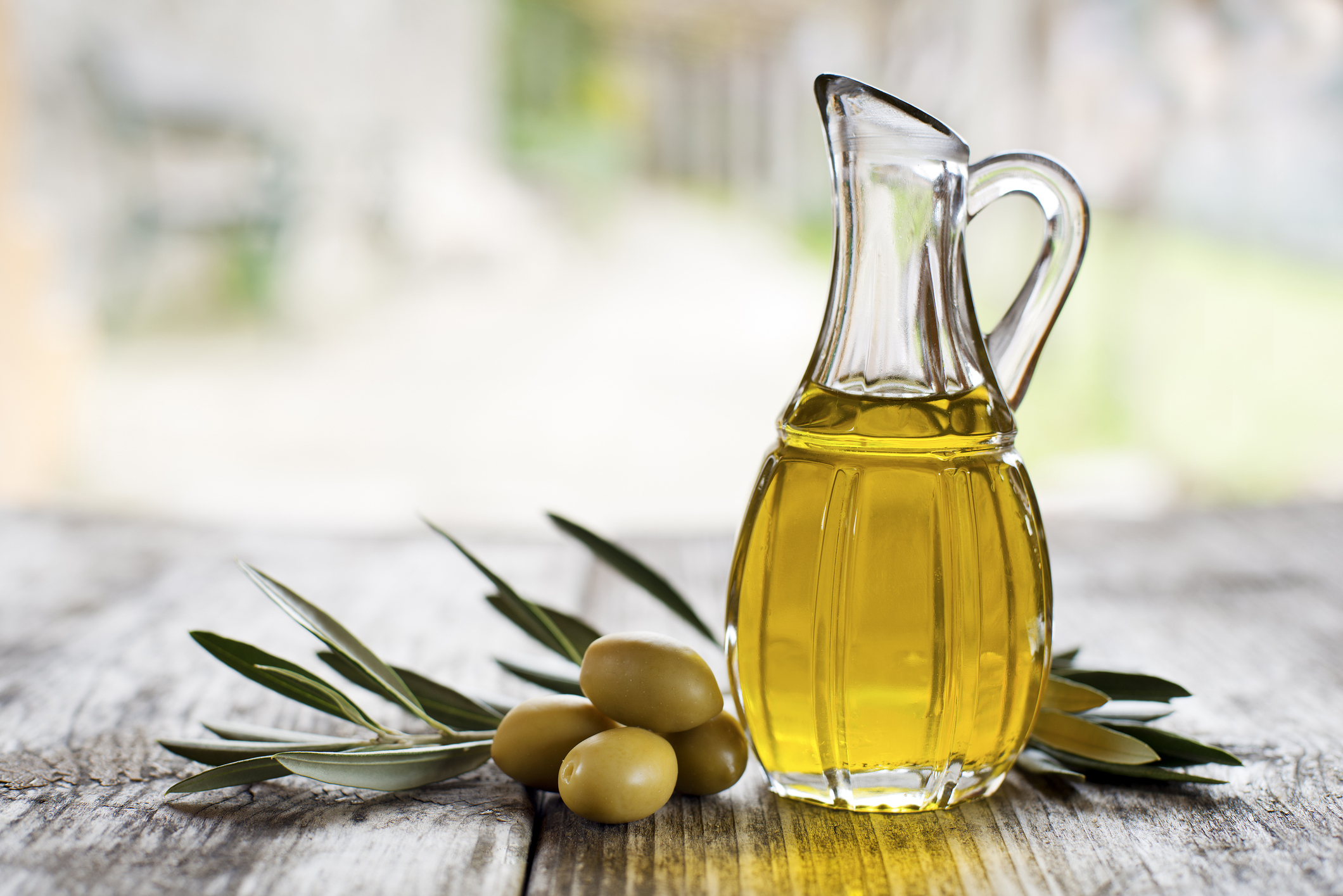 Use light or refined olive oil. Save the extra virgin for salads (see below). Olive oil is a key part of the Mediterranean Diet, which is high in fruits, vegetables, fish and unsaturated fats. Olive oil is high in phenols, which are powerful antioxidants and oleic acid, which is good for your heart.
Use light or refined olive oil. Save the extra virgin for salads (see below). Olive oil is a key part of the Mediterranean Diet, which is high in fruits, vegetables, fish and unsaturated fats. Olive oil is high in phenols, which are powerful antioxidants and oleic acid, which is good for your heart.
Avocado oil
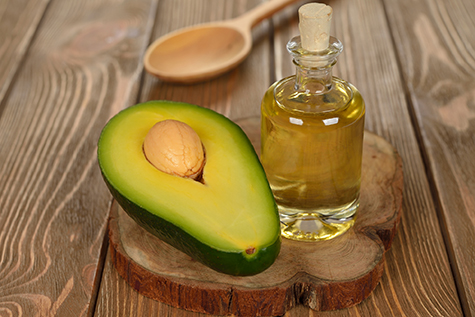 Avocado oil has a sweet aroma and fairly high smoke point.
Avocado oil has a sweet aroma and fairly high smoke point.
Clarified butter or ghee – The milk solids and water content are removed from ghee so it can tolerate high heat. Just use sparingly, as it contains the saturated fat of butter. Great for frying eggs or creating creamy sauces.
Refined palm or coconut oils have a high smoke point and are low in polyunsaturated fats.
Medium-heat cooking
For a gentle sauté, stewing, or braising, the above oils would work fine, too, but here are more for medium-heat cooking:
Filtered olive oil – With the solids filtered out, olive oil withstands heat better that extra virgin olive oil and has the same healthful properties.
Sesame oil
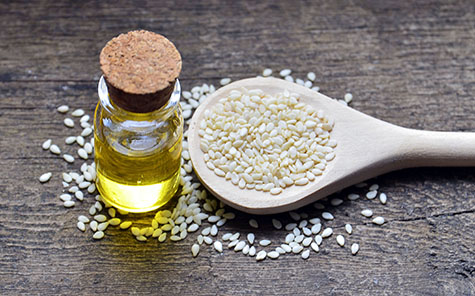 Sesame oil contains sesamol, which is a powerful antioxidant, and a related compound called sesamin, which appears to inhibit inflammatory compounds in the body. There have also been studies indicating that sesame oil lowers blood pressure. It’s delicious for stir-frying.
Sesame oil contains sesamol, which is a powerful antioxidant, and a related compound called sesamin, which appears to inhibit inflammatory compounds in the body. There have also been studies indicating that sesame oil lowers blood pressure. It’s delicious for stir-frying.
Off-heat cooking
For making salad dressings or drizzling over a finished dish, choose unfiltered extra virgin olive oil or unrefined or toasted nut and seed oils for maximum flavor and health benefits. Keep these oils in the refrigerator to keep them from going rancid:
Almond oil
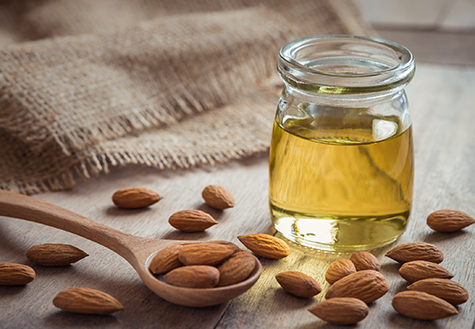 Almond Oil has a distinctively nutty flavor and only seven percent saturated fat—one of the lowest.
Almond Oil has a distinctively nutty flavor and only seven percent saturated fat—one of the lowest.
Hazelnut oil
 Hazelnut Oil is high in healthful monounsaturated fats and low in saturated fat, and it has a bold, nutty flavor.
Hazelnut Oil is high in healthful monounsaturated fats and low in saturated fat, and it has a bold, nutty flavor.
Macadamia nut oil
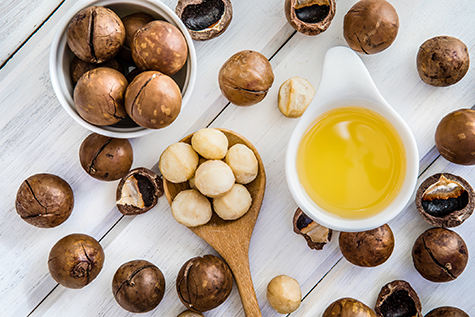 Macadamia nut oil is richer in monounsaturated fat than even olive oil, high in oleic acid, which increases the incorporation of Omega-3 fatty acids that help protect the heart, and has a rich flavor.
Macadamia nut oil is richer in monounsaturated fat than even olive oil, high in oleic acid, which increases the incorporation of Omega-3 fatty acids that help protect the heart, and has a rich flavor.
Walnut oil
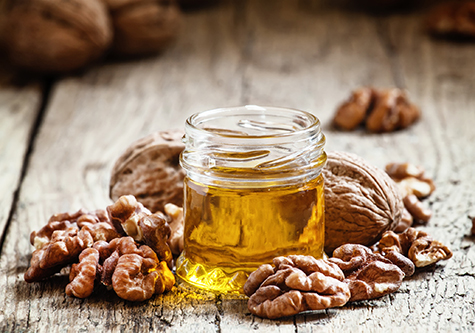 Walnut oil is low in saturated fat and a great source of Omega-3 fatty acids and a delicious mild flavor perfect for salads.
Walnut oil is low in saturated fat and a great source of Omega-3 fatty acids and a delicious mild flavor perfect for salads.
Make Your Own Mayonnaise
If you’ve never had homemade mayonnaise, this is a real treat. Even my friends who say they HATE mayonnaise love this one.
I’ve been making mayonnaise at home since I was a little girl. My mother knew that homemade mayonnaise made with high-quality oil like walnut or extra virgin olive oil and free-range chicken eggs tastes better than ready-made. Try flavoring your mayonnaise with 1–2 tsp. turmeric, fresh dill, pickle relish, or hot sauce for fun variations. Raw eggs carry some risk of salmonella and should be avoided by anyone with impaired immune response.
Mom’s Mayonnaise
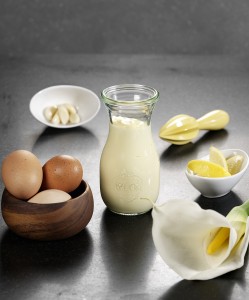
Yields 1 cup
Ingredients
2–3 egg yolks (organic, free-range, or Omega-3-enriched)
½ cup extra virgin olive oil
1 Tbs. fresh lemon juice
1 tsp. minced garlic
½ tsp. salt or salt substitute
Procedure
- In a food processor or blender, mix the egg yolks on low speed for 2 minutes.
- With the food processor or blender still running, add the oil gradually (by the spoonful).
- Once you have a thick, creamy mixture, add the lemon juice, garlic, and salt. Stop processing and transfer to a glass jar. Refrigerate for about an hour before use.
FoodTrient Benefits
![]() Mind: Improves mood, memory and focus
Mind: Improves mood, memory and focus
![]() Beauty: Promotes vibrant skin and hair and keeps eyes healthy
Beauty: Promotes vibrant skin and hair and keeps eyes healthy